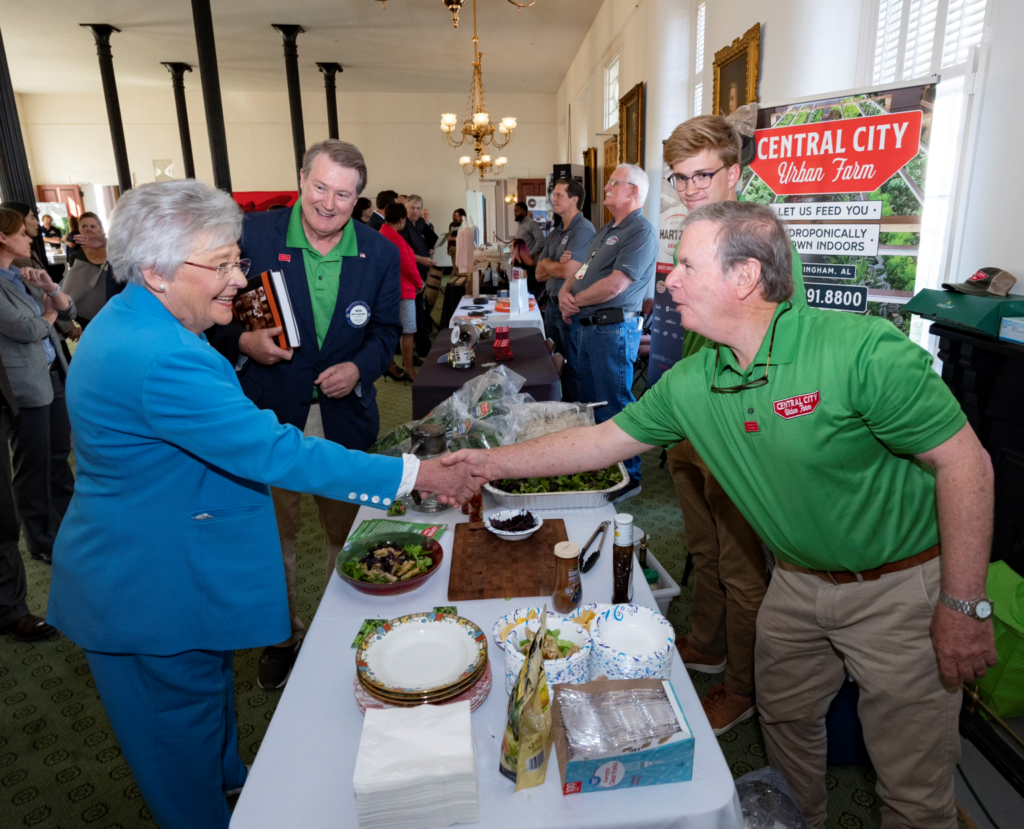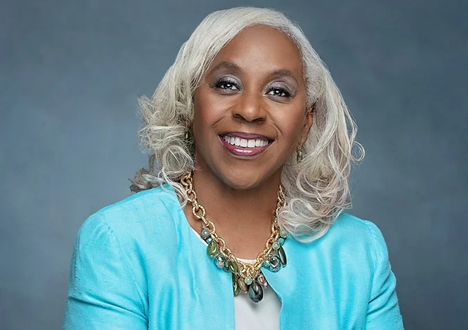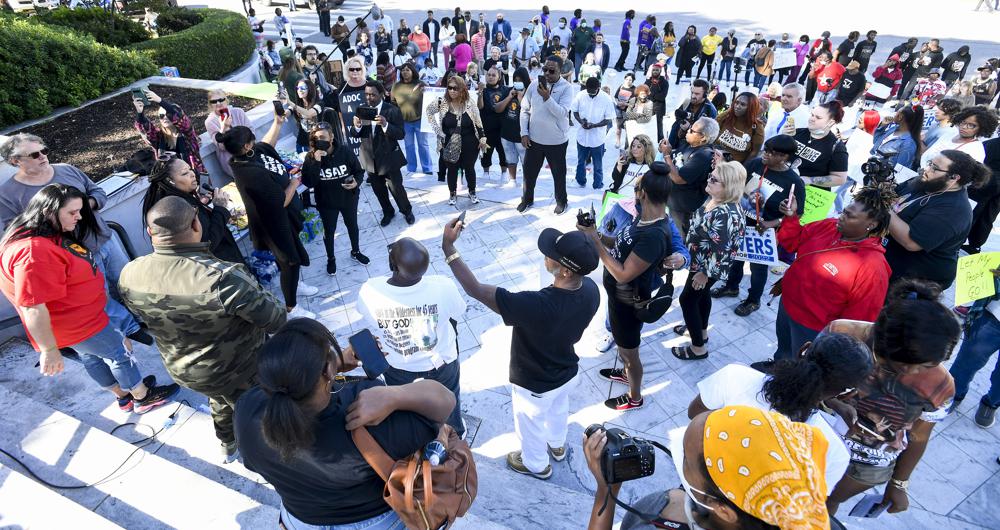Today last day to download application forms from Alabama Medical Cannabis Commission

The Alabama Medical Cannabis Commission (AMCC) will no longer allow prospective applicants to download paperwork for applying to grow, dispense, transport, or process medical marijuana in the state of Alabama. At 5:00 p.m. today, the AMCC website will close the portal allowing prospective applicants to download the paperwork. The portal opened, and people could download the forms following the publication of the AMCC rules on August 31. The 171 pages of rules were adopted by the Commission after a public hearing and a long public comment period over this summer. The AMCC-issued licenses to grow, process, transport, or dispense medical cannabis will be issued on July 10, 2023, at noon unless there is an appeal that is ongoing and if the Commission is able to maintain the proposed timeline. Completed applications are due in late December. The number of licenses issued is strictly limited by the original medical cannabis legislation that was passed during the 2021 Alabama Regular Legislative session. That legislation, Senate Bill 46, was sponsored by State Sen. Tim Melson and State Rep. Mike Ball. SB46 passed both Houses of the Alabama Legislature in May of 2021 despite having to overcome a nine-and-a-half-hour filibuster by social conservatives in the Alabama House of Representatives and was signed into law by Gov. Kay Ivey. The legislation created the AMCC and tasked the Commission with writing the rules, awarding the licenses, and regulating the medical cannabis industry in Alabama. The Commission was appointed by Gov. Ivey as well as leaders of the legislature. The AMCC has appointed former Alabama Agriculture and Industries Commissioner John McMillan as its executive director. Chey Garrigan is the founder and President of the Alabama Medical Cannabis Industry Association (AMCIA). “This is an exciting time for the industry and for people with a medical need treatable by cannabis,” Garrigan said. “There have been over at least 170 people download forms to look at applying for one of the licenses. There is a lot of work that an applicant has to do in order to meet all of the demands of the AMCC’s rules. The Association is busy helping applicants understand and work their way through the process.” Alabamians who have a documented medical need will be able to get a recommendation for cannabis from their doctor and purchase Alabama medical cannabis no earlier than late 2023. To connect with the author of this story, or to comment, email brandonmreporter@gmail.com.
Kay Ivey hosts the second annual Made in Alabama showcase

Gov. Kay Ivey and the Alabama Department of Commerce hosted the second annual Made in Alabama Showcase on Friday at the Old State Supreme Court Chambers in the historic Alabama Capitol Building to recognize some of Alabama’s top companies. “It is great to be surrounded by some of Alabama’s most wonderful businesses who continue showing the world what it means to be Made in Alabama,” Gov. Ivey stated. “As I like to say, the work that our businesses are doing, Made in Alabama, is bringing back Made in America. I would like to begin by offering big congratulations to this year’s 14 honorees. I am truly honored to recognize y’all today here in our State Capitol. We have got companies from all across Alabama run by a group of diverse group of Alabamians. Truly we are seeing Alabama. In booths around the room, we are honoring great Alabama companies producing things from honey balls to pop sickles, to game clocks, to Red Land Cotton bed sheets. I firmly believe that Alabama has the best businesses in the country. What you have accomplished has made that Made in Alabama brand even more exceptional. As Governor, please know that you always have my full and total support. When you are successful, the state of Alabama is successful.” “It is amazing all the good things that Alabamians are making,” Ivey told reporters. The governor praised “all the good work that the people of Alabama are doing.” Gov. Ivey selected 14 top-rated businesses for their work and invited them to exhibit their products at the Alabama State Capitol. The 11 honorees that were able to attend showcased their products, discussed their company’s history and gave away promotional items to the public. “Our state is blessed to have numerous companies producing outstanding Alabama-American-made products every single day. During Manufacturing Month, I am proud to recognize 14 of the best our state has to offer,” said Governor Ivey. “Alabama made products speak to who we are as a state, and we could not be more excited to showcase these exceptional companies’ products and service to all our visitors today.” Ivey has prioritized economic development since her elevation to governor in 2017. The state has attracted over $32 billion in capital investment and 65,000 new jobs over that time period. “The ‘Made in Alabama’ badge is synonymous with quality, and it’s crystal clear that the companies being honored in today’s showcase have mastered the art of turning out an amazing variety of world-class products,” said Alabama Commerce Secretary Greg Canfield in a statement. The honorees were nominated by the Alabama Department of Commerce, Manufacture Alabama, the Chamber of Commerce Association of Alabama, and the Business Council of Alabama. The 14 honorees are as follows: Frios Gourmet Pops, based in Mobile, produces gourmet popsicles for its franchisees across the country. The company has grown from a brick-and-mortar shop to pivoting in the middle of the COVID-19 pandemic to be mobile by attending parties and corporate events in their tie-dye food trucks. Shaw Industries Group, Inc. offers a diverse portfolio of carpet, resilient, hardwood, tile and stone, laminate, synthetic turf, and other specialty items for residential and commercial markets worldwide via its brands Anderson Tuftex, COREtec, Floorigami, Patcraft, Philadelphia Commercial, Shaw Contract, Shaw Floors, Shaw Sports Turf, Southwest Greens and more. Shaw’s fiber manufacturing plant in Andalusia, Alabama, is Covington County’s largest employer. To Your Health Sprouted Flour Company is a national pioneer in producing organic sprouted grains. In their 17 years of business, they have grown to become the largest U.S. producer of sprouted grains, flours, legumes, seeds, and nuts, producing close to one million pounds per year. They are located in Fitzpatrick, Alabama, in Bullock County. Victory Game Clocks is a female, veteran-owned and operated team sport timing supplier based in Roanoke, Alabama. Victory Game Clocks designs, manufactures, and sells high-quality practice timers, play clocks, scoreboards, electronic down markers, and timeout countdown clocks for football and other sports. Their products first hit the market in 2011, and today are used by professional, college, and high school teams across the country. WoodHaven Custom Calls designs top-of-the-line turkey and deer calls in Heflin, Alabama. The calls can be customized as a mouth, wood, or friction call. The idea for the company was built in the late 1980s from the owner’s desire to be the best turkey hunter he could be. Red Land Cotton is a family-owned, direct-to-consumer e-commerce company crafting luxury bedding, towels, and loungewear exclusively from cotton grown on their family farm in north Alabama. Red Land Cotton utilizes a supply chain that starts and ends in north Alabama. All of the cotton is grown, harvested, and ginned on Red Land Farms in Lawrence and Colbert counties. It is manufactured in different communities across the United States before it returns as finished cloth to be cut and sewn and then distributed from Moulton, Alabama. Golden Eagle Syrup founders, Mr. and Mrs. Victor Patterson Sr., produced their first can in Fayette, Alabama on October 28, 1928. The original manufacturing building still remains the home of Golden Eagle Syrup today. In efforts to keep the historic company viable, additional products, which incorporate the syrup, are being added. Caramel Corn was the first of these brought to market and is carrying on the tradition of quality products at fair prices. Golden Eagle Syrup remains a family-owned, family-run business; the present owners have a strong commitment to preserving the tradition and quality established by the founders. Jack Daniel Cooperage manufactures white oak barrels for Jack Daniel’s Tennessee Whiskey. The Jack Daniel Cooperage is located in Trinity, Alabama, and is home to approximately 175 employees. “JDC” was established in 2014 and currently produces approximately 1,200 barrels per day. Specification Rubber Products began in 1968 as a manufacturer of molded rubber components for the waterworks industry, specializing in rubber gaskets. Today, their company is a primary supplier of ductile iron pipe, valve, and hydrant producers. Not only do they help to make drinking water safe, but they also received the “Best Place to Work” award in 2021 from Rubber News, a national industry publication.
Yolanda Flowers addresses prison protesters

On Friday, Democratic nominee for Governor Yolanda Flowers addressed the “Break These Chains” protest rally on the Capitol steps in Montgomery. The rally aimed to draw attention to conditions within the Alabama Department of Corrections. Alabama is one of seven states that do not pay its prisoners for their labor. There is reportedly still an ongoing work stoppage in some state prisons. “Criminal justice is in my heart,” Flowers told the crowd, saying that she shares their concerns. Flowers said that some prisoners have endured being stripped “naked and beating them to a bloody pulp” in the prisons. “I am a recent widow, for just about a year,” Flowers said. “My husband is free, but I want my people to be free.” “They have been incarcerated since they were 12 years old,” Flowers charged. “They when they turned 17 or 18, they found some way to convict them and keep them locked up.” Flowers said that “God is the only way” to resolve this problem. “God is the government. He is the ruling authority because he made the universe. We are going to have to get down on our knees and humble ourselves before the Lord.” Flowers then sang a Gospel song, “You are all important to me. I will pray for you. You pray for me. I love you. I need you to survive. You are all important to me. I need you to survive.” One of Flowers’ supporters said, “The singing governor, a praying governor; that is what we need.” Flowers acknowledged that she is being out-fundraised by the incumbent, Alabama Governor Kay Ivey. “Money does not move me,” Flowers said. Diyawn Caldwell, who emceed the event, urged voters, “Don’t divide the vote. That only benefits Kay Ivey.” Glenn Ray with the NAACP also addressed the crowd. “When you have somebody who does not listen to you, you got to vote them out of office,” Ray said. “We have human beings that are being mistreated,” Ray claimed. He argued that the Governor and Republicans have ignored the situation. “We are going to have to vote these people out.” Ray said that the Ivey administration is using money that was supposed to be distributed to the people for COVID relief to build new prisons. “Those prisons are for your children and grandchildren,” Ray said. Addressing the problems with Alabama prisons will be a challenge for the next governor as the state faces a U.S. Department of Justice lawsuit and suit that is already in federal court. The court has tasked the state with hiring more guards and providing appropriate mental health and healthcare services to the prisoners. The DOJ charges that the violence in Alabama prisons is so bad that it violates the U.S. Constitution’s ban on cruel and unusual punishment. Flowers is retired from a career as a teacher and rehabilitation services specialist in Tennessee. She has several degrees from the University of Tennessee. She is a native of Birmingham, where she lives in the Woodlawn community of the city. She is a mother and grandmother. Flowers, Ivey, and the Libertarian nominee, Dr. James “Jimmy” Blake, will be on the November 8 general election ballot. To connect with the author of this story, or to comment, email brandonmreporter@gmail.com.
Joe Biden turning to Donald Trump-era rule to expel Venezuelan migrants

Two years ago, candidate Joe Biden loudly denounced President Donald Trump for immigration policies that inflicted “cruelty and exclusion at every turn,” including toward those fleeing the “brutal” government of socialist Nicolas Maduro in Venezuela. Now, with increasing numbers of Venezuelans arriving at the U.S.-Mexico border as the November 8 election nears, Biden has turned to an unlikely source for a solution: his predecessor’s playbook. Biden last week invoked a Trump-era rule known as Title 42 — which Biden’s own Justice Department is fighting in court — to deny Venezuelans fleeing their crisis-torn country the chance to request asylum at the border. The rule, first invoked by Trump in 2020, uses emergency public health authority to allow the United States to keep migrants from seeking asylum at the border, based on the need to help prevent the spread of COVID-19. Under the new Biden administration policy, Venezuelans who walk or swim across America’s southern border will be expelled, and any Venezuelan who illegally enters Mexico or Panama will be ineligible to come to the United States. But as many as 24,000 Venezuelans will be accepted at U.S. airports, similar to how Ukrainians have been admitted since Russia’s invasion in February. Mexico has insisted that the U.S. admit one Venezuelan on humanitarian parole for each Venezuelan it expels to Mexico, according to a Mexican official who was not authorized to discuss the matter publicly and spoke condition of anonymity. So if the Biden administration paroles 24,000 Venezuelans to the U.S., Mexico would take no more than 24,000 Venezuelans expelled from the U.S. The Biden policy marks an abrupt turn for the White House, which just weeks ago was lambasting Florida Gov. Ron DeSantis and Texas Gov. Greg Abbott, both Republicans, for putting Venezuelan migrants “fleeing political persecution” on buses and planes to Democratic strongholds. “These were children, they were moms, they were fleeing communism,” White House press secretary Karine Jean-Pierre said at the time. Biden’s new policy has drawn swift criticism from immigrant advocates, many of them quick to point out the Trump parallels. “Rather than restore the right to asylum decimated by the Trump administration … the Biden administration has dangerously embraced the failures of the past and expanded upon them by explicitly enabling expulsions of Venezuelan migrants,” said Jennifer Nagda, policy director of the Young Center for Immigrant Children’s Rights. The administration says the policy is aimed at ensuring a “lawful and orderly” way for Venezuelans to enter the U.S. Why the turnaround? For more than a year after taking office in January 2021, Biden deferred to the Centers for Disease Control and Prevention, which used its authority to keep in place the Trump-era declaration that a public health risk existed that warranted expedited expulsion of asylum-seekers. Members of Biden’s own party and activist groups had expressed skepticism about the public health underpinnings for allowing Title 42 to remain in effect, especially when COVID-19 was spreading more widely within the U.S. than elsewhere. After months of internal deliberations and preparations, the CDC on April 1 said it would end the public health order and return to normal border processing of migrants, giving them a chance to request asylum in the U.S. Homeland Security officials braced for a resulting increase in border crossings. But officials inside and outside the White House were conflicted over ending the authority, believing it effectively kept down the number of people crossing the border illegally, according to senior administration officials. A court order in May that kept Title 42 in place due to a challenge from Republican state officials was greeted with quiet relief by some in the administration, according to officials who spoke to The Associated Press on condition of anonymity to discuss internal discussions. The recent increase in migration from Venezuela, sparked by political, social, and economic instability in the country, dashed officials’ hopes that they were finally seeing a lull in the chaos that had defined the border region for the past year. By August, Venezuelans were the second-largest nationality arriving at the U.S. border after Mexicans. Given that U.S. tensions with Venezuela meant migrants from the country could not be sent back easily, the situation became increasingly difficult to manage. So an administration that had rejected many Trump-era policies aimed at keeping out migrants, that had worked to make the asylum process easier, and that had increased the number of refugees allowed into the U.S. now turned to Title 42. It brokered a deal to send the Venezuelans to Mexico, which already had agreed to accept migrants expelled under Title 42 if they are from Guatemala, Honduras, or El Salvador. All the while, Justice Department lawyers continue to appeal a court decision that has kept Title 42 in place. They are opposing Republican attorneys general from more than 20 states who have argued that Title 42 is “the only safety valve preventing this Administration’s already disastrous border control policies from descending into an unmitigated catastrophe.” Under Title 42, migrants have been expelled more than 2.3 million times from the U.S. after crossing the country’s land borders illegally from Canada or Mexico, though most try to come through Mexico. The administration had announced it would stop expelling migrants under Title 42 starting May 23 and go back to detaining and deporting migrants who did not qualify to enter and remain in the U.S. — a longer process that allows migrants to request asylum in the U.S. “We are extremely disturbed by the apparent acceptance, codification, and expansion of the use of Title 42, an irrelevant health order, as a cornerstone of border policy,” said Thomas Cartwright of Witness at the Border. “One that expunges the legal right to asylum.” A separate lawsuit from the American Civil Liberties Union also is trying to end Title 42, an effort that could render the administration’s proposal useless. “People have a right to seek asylum – regardless of where they came from, how they arrive in the United States, and whether or not they have family here,” said ACLU lawyer Lee Gelernt. Republished with the permission of The Associated Press.
Judge grills Alabama officials over lethal injection process

A federal judge on Thursday questioned Alabama officials about the state’s lethal injection procedures — including how many needle “pokes” are too many — after problems with vein access at the state’s last two scheduled executions. U.S. District Judge R. Austin Huffaker, Jr. put forth the questions during a court hearing in a lawsuit filed by Kenneth Eugene Smith, who is seeking to block his upcoming Nov. 17 execution. His attorneys have pointed to problems at recent lethal injections. Alabama called off a lethal injection last month after having trouble accessing the veins of the 351-pound (159-kilogram) inmate, and advocacy groups have alleged a July execution, carried out after a lengthy delay, was botched. Huffaker asked an attorney for the state at what point is the search for a vein impacted by the constitutional ban on cruel and unusual punishment. “It is 10 pokes? Is it 11? Is it 100? Is it one hour? … What is it?” Huffaker asked. He also asked when does the state make a decision to abort a lethal injection when there are problems obtaining a vein connection. Robert Anderson, of the Alabama attorney general’s office, said the state prison commissioner and warden are in charge of the decision on when to call off an execution. Huffaker also asked the state prison commissioner to clarify when the state will be ready to use nitrogen hypoxia, an execution method the state has authorized but never used. Huffaker said the state had told him different things at different times, including once suggesting that it could be ready for last month’s execution — a suggestion that turned out to be untrue. “It’s being developed, but we don’t have a protocol at this point,” Alabama Corrections Commissioner John Hamm told the judge. Anderson added that Alabama is attempting to develop the country’s first procedures for execution by nitrogen hypoxia, so it is a complicated endeavor and difficult to estimate a precise time. Smith, 57, is set to be executed by lethal injection at Holman Correctional Facility on Nov. 17 after being convicted in the 1988 murder-for-hire killing of Elizabeth Dorlene Sennett, a 45-year-old grandmother and pastor’s wife. Smith’s attorney, Robert Grass, said Alabama’s lethal injection procedure creates the intolerable “risk of cruel and unusual punishment.” He also said the state has kept much of the process shrouded in secrecy, including the identities and qualifications of the people who connect the IV line to the inmate. Grass is seeking to obtain records from recent executions and to interview execution team members. Alabama is asking the judge to dismiss Smith’s lawsuit, arguing that courts have long upheld the constitutionality of lethal injection. Alabama last month called off the lethal injection of Alan Miller after being unable to access his veins. The state faced a midnight deadline to get the execution underway. Miller said in a court filing that prison staff poked him with needles for over an hour as they tried to find a vein. Miller’s attorneys are fighting the state’s effort to seek a new execution date for him. The July execution of Joe Nathan James Jr. was carried out three hours after the U.S. Supreme Court said the state could proceed. The state acknowledged that establishing the intravenous line took longer than expected. However, Reprieve US Forensic Justice Initiative, a human rights group that opposes the death penalty, has maintained the execution was botched. Witnesses to a private autopsy said that James’ body showed evidence that officials had attempted to perform a “cutdown,” a procedure in which the skin is opened to allow a visual search for a vein. They also speculated that he may have been given a sedative shot. The state said that a “cut down” is not part of their protocol and that James was not sedated. Hamm, speaking under oath during the Thursday hearing, told the judge that during Smith’s execution that the state will not use a “cut down” procedure and will not give any sort of sedative shot. Republished with the permission of The Associated Press.
Black leaders rebuke Tommy Tuberville stance on reparations, crime

As far as Jeremy Ellis is concerned, Republican Tommy Tuberville should know or learn more about the long history and struggles of the Black Alabama residents he represents in the U.S. Senate. Tuberville told people Saturday at an election rally in Nevada that Democrats support reparations for the descendants of enslaved people because “they think the people that do the crime are owed that.” His remarks — seen by many as racist and stereotyping Black Americans as people committing crimes — cut deeply for some, especially in and around Africatown, a community in Mobile, Alabama, that was founded by descendants of Africans who were illegally smuggled into the United States in 1860 aboard a schooner called the Clotilda. The 2019 discovery of the vessel in the muddy waters near Mobile offers the best argument for reparations of some type to the descendants of the enslaved people who survived the long and arduous Atlantic crossing. “I think that Sen. Tuberville’s comments were misinformed, ignorant in nature and an embarrassment for the state of Alabama,” said Ellis, who now lives in Marietta, Georgia, and is president of the Clotilda Descendants Association. Before running for the U.S. Senate, Tuberville spent four decades coaching football, including 11 years as the head coach at Auburn University, which is about a three-hour drive northeast of Mobile. Ellis graduated in 2003 from Auburn’s engineering school and said he attended all of the football team’s home games while at Auburn. Ellis also said he served as a student assistant for the team under Tuberville. “I think it would suit Sen. Tuberville to visit Africatown,” Ellis said. “It’s an area he is extremely familiar with since he recruited a number of his players there when he was head football coach.” Tuberville’s remarks about the Democratic Party’s response to perceived rising crime across the nation come just weeks before the November 8 general election, as Republicans seek to regain control of Congress. “They’re not soft on crime,” Tuberville said of Democrats. “They’re pro-crime. They want crime. They want crime because they want to take over what you got. They want to control what you have. They want reparation because they think the people that do the crime are owed that.” The first-term senator has not publicly responded to backlash from his words, which have revived the national debate about reparations. In April 2021, a House panel approved legislation that would create a commission to study the issue. President Joe Biden’s White House said earlier that he backs studying reparations for Black Americans. “When they illegally brought my ancestors to the Mobile, Alabama, area a crime was committed,” Ellis told The Associated Press on Tuesday. “And now that we have the actual artifacts, evidence of the crime, I think this is a clear and perfect case study.” Tuberville’s statements “are the words of a man who is trying to lead a desperation effort to discredit and discount the fact that reparations are owed,” said Darron Patterson, past president of the Clotilda Descendants Association and Ellis’ cousin. Patterson, who lives in Mobile and says his great-great-grandfather was a slave aboard the Clotilda, criticized Tuberville’s assertions. “Are you saying the descendants of slaves are the only ones doing crime in this country?” Patterson said. “We’ve got people in Washington that really don’t understand what their job is. We sent you there to do the job. The job is to have America’s best interest at heart. How in the world is America’s best interest at heart when you make a statement that Democrats are for crime and the ones doing the crimes are the ones hollering for reparations?” Patterson said he plans to meet next week with Tuberville. Tuberville’s message was directed at the base of MAGA Republicans seeking office and supporters of former President Donald Trump, an ally of Tuberville, according to Ron Daniels, convener of the National African American Reparations Commission. The remarks present “an Emancipation Proclamation moment” for Joe Biden, a Democrat, to embrace the federal study on reparations and say, “‘I stand on the side of racial justice and racial healing,’” Daniels said. But Frederick Gooding Jr., an African American studies and honors college professor at Texas Christian University, believes Tuberville was simply “testing the waters.” “I think this is quite strategic,” Gooding said. “Let’s see where it goes. He’s in a small town in Nevada. We’re a couple years away from the next major national election. He’s leveraging time, pulling some of the rhetoric out piecemeal and in small dosages. Being a successful football coach for so long, strategy literally is his game.” But what Tuberville said about reparations and crime “doesn’t make any sense,” Gooding added. “The idea that ‘they want to take over what you got, then control what you have’ stokes fearmongering,” Gooding said. “Then he throws in reparations. Reparations has to do with repairing the human crimes that were committed.” Data compiled by the FBI shows that crime has slowed in the last year and most crimes are committed by white people, who make up more than 75% of the U.S. population, according to the Census Bureau. The data was released on October 5. It showed violent and property crime generally remained consistent between 2020 and 2021, with a slight decrease in the overall violent crime rate and a 4.3% rise in the murder rate. That’s an improvement over 2020, when the murder rate in the U.S. jumped 29%. Figures from some of the nation’s largest police departments weren’t included in the FBI report. An analysis of crime data by The Brennan Center for Justice also shows that the murder rate grew nearly 30% in 2020, rising in cities and rural areas alike. Republished with the permission of The Associated Press.
Families protest prison conditions at Alabama Capitol rally

People with relatives and loved ones in Alabama prisons rallied outside the state Capitol Friday to decry what they described as inhumane conditions behind bars and a parole process that sees few inmates released. “Men are being murdered. Men are overdosing. Men are taking their own lives,” said Eric Buchanon, a former inmate who does prison ministry. “Somebody said, ‘Well, how can we stop people from taking their own lives?’ Well, if you had enough officers operating the prisons, who could monitor these men like they are supposed to, that would help.’” More than 200 people joined the rally outside the Capitol. Tombstones were placed on the white marble steps of the Alabama Capitol to represent the men who died in Alabama prisons from suicides, murders, and overdoses. The rally followed a three-week work strike at many prisons aimed at seeking changes to state sentencing laws and the parole system. Inmates refused to show up for jobs in prison kitchens, janitorial services, and laundries, jobs that keep the prisons functioning but for which the inmates receive no pay. The Alabama Department of Corrections said Friday that two facilities for men continue to have complete work stoppages, and three facilities have partial work stoppages. Inmates and activists have accused the Department of Corrections of using pressure tactics in an attempt to end the demonstration. Officials said the reduced rations and the lack of visits were the result of a prisoner labor shortage. At the Capitol rally, Sandy Ray carried a photo of the battered face of her son, Steven Davis, who died in 2019 after an altercation with corrections officers at William E. Donaldson Correctional Facility where he was incarcerated. “It’s about the things they are doing to human beings,” Ray said about her continued fight for changes in the prison system. She said it’s time for state officials to do the “right thing that they should have been doing all these years.” “If you are going to stay in office, how can you sleep at night knowing (inmates) are sleeping on floors with rats running across them? Roaches are being served with food,” Ray said. The U.S. Department of Justice is suing Alabama over the conditions in its prisons, saying the state is failing to protect male inmates from inmate-on-inmate violence and excessive force at the hands of prison staff. The case is slated for trial in 2024. Alabama officials have acknowledged problems but deny that the living conditions violate constitutional standards. Inmates and family members say that conditions have worsened in recent years despite the attention on the system. The rate of paroles has plummeted in recent years, according to state statistics. The state parole board this week granted parole to just six inmates of the 58 who had hearings, according to a news release Alabama faces a separate court order to add as many as 2,000 officers to man understaffed prisons but has been unable to fill the positions. Alabama Corrections Commissioner John Hamm told a legislative committee this summer that the department has 1,879 officers and 541 vacancies out of 2,420 budgeted positions. Republished with the permission of The Associated Press.


